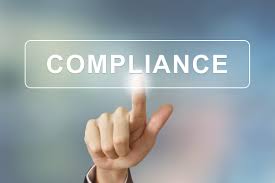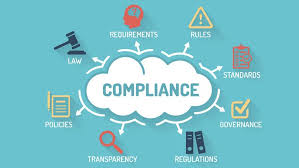2019 Ethics and Compliance Predictions

This is my favorite topic. New trends come and go in the compliance field, while effective solutions and strategies slowly but surely take hold. Eventually, an effective compliance practice or strategy becomes a “best practice,” or an “industry standard.”
To those who complain that ethics and compliance is a profession riddled with amorphous standards or vague “guidance” that lacks discipline, my response is that such critics fail to understand how compliance works in the real world, and the ongoing development and implementation of effective compliance strategies among a profession committed to ethical cultures and building compliance programs that detect and prevent code and legal violations.

The compliance profession has a broad mandate and eventually will transform business operations by embedding ethics and compliance as a key business function that promotes sustainable growth and contributes to the productive use and value of corporate assets. That is the profession’s mantra and code.
Now, let’s look at some of the strategies, tools and trends for 2019.
Ethical Culture: Compliance has embraced and renewed its commitment to promoting a company’s ethical culture. As a pure economic matter, an ethical culture is the most cost-effective control that a company can implement. It is a compliance win-win because senior management easily understands the importance of an ethical culture to the success of a company. The challenge for CCOs has been – and will continue to be – educating the board and senior management on how to promote, measure and monitor an ethical culture. New and cutting-edge innovation is needed here to advance the ethical culture issue. CCOs have to embrace creative solutions and argue in favor of additional resources and new approaches.
Board Partnership and Oversight: CCOs have been frustrated for years by the failure of corporate boards to support the compliance mission and understand how to conduct oversight and monitoring of the compliance function. This is slowly starting to change. The first evidence of this evolution is the increase in board training (always a good first step). CCOs have to devote attention to engaging board members, developing positive commitments to compliance and ensuring that board members understand the critical function and benefits of compliance.

Automation and Technology: We have seen the beginning of the compliance technology revolution in 2018. Third-party risk management is driving some of this change but more importantly regtech demand and solutions are increasing capabilities for artificial intelligence, machine learning and explosion of computer processing capabilities. Even in non-regulated companies, CCOs are demanding automated (paperless) solutions that allow CCOs to leverage resources and improve auditing and monitoring capabilities. This trend will continue to increase in 2019, new solutions will be developed or expand, and rapid innovation will continue to enhance compliance functions.
Compliance Data: As part of the automation and technology demand, CCOs are embracing compliance program data. A new one-stop compliance dashboard will evolve and replace the hodgepodge of compliance solutions used by compliance professionals. Compliance programs generate a large volume of data. Some of the data is more relevant than other types of data. The key is to quickly cull the relevant and prioritize its use in a compliance program. Data should not be used just for data’s sake – the cost of collection in time and money has to provide useful and relevant insights and inferences relating to a compliance program. More work is needed in this area to make sure that compliance data is valuable and relevant.

Regular Assessments: A compliance program has to be measured, assessed and improved. CCOs are embracing more assessments – of the company’s culture and of its compliance program. This is a positive trend and reflects the maturing transformation of compliance programs into a stable and necessary part of the company’s operations.
Proactive Auditing: If there was one major trend that needs to occur (and is slowly growing), it is the need for CCOs to embrace and implement proactive auditing programs that are separate from or conducted in addition to the internal audit responsibilities. Compliance has to monitor its activities and can no longer rely on others to provide such insights. Compliance professionals have to design and implement proactive audits of their operations using their own “independent” auditing staff contained in the compliance department. At the same time, CCOs have to use creative tools for such audits, including sampling, desk audits and financial monitoring of non-material transactions. This is the real issue for CCOs for the next year, and CCOs have started to recognize the value of this strategy.















Mr. Volkov,
To fully understand the point you are making, I had to ask Merriam-Webster for help in defining “amorphous standards.” Possessing several features, the general take on amorphous is that of possessing no form, structure, organization or unity. Having followed your Blog for several years, your focus has been on enforcement and a structure for compliance within the corporate foundation…. my take is that “ethics” can be bought (or sold), as is in the case of corporate consulting firms offering awards for corporate ethics. I don’t agree that “Compliance has embraced and renewed its commitment to promoting a company’s ethical culture. ”
Compliance is a standard, while ethics, as you have stated, is a culture. If anything, it is a company’s ethical culture that promotes a compliant standard, just as Corporate Governance is also dependent on a ethical set of moral values.
With that said, can we expect to see a re-name of “Corruption, Crime, and Compliance?” Perhaps not, but maybe we can see more of how “ethics” plays a major role in a compliant environment?
Dennis Myhre , AIC
Mr. Volkov,
I would like to briefly expand on my previous comment concerning ethics and compliance that might help your readers understand the compliance issues that still exist today. I live in Idaho, a popular State for treasure hunters because of it’s history. If a piece of metal is found, it’s appearance and condition helps determine it’s source. The same is true for corporate governance, which involves transparency and accountability.
The treasure hunter will find a piece of metal, typically iron or steel, which will corrode without protection. Corporate Governance will corrode as well without protective measures. Most metals are protected by using a metal alloy, tin, or a chemical application of zinc, referred to as galvanizing. In the short term, both will function well, but if left in the ground or a creek for 150 years, there will be a significant difference. In time, the chemical “coating’ zinc will erode, resulting in a worthless piece of rusted metal, while tin in the form of bronze or other alloys will last into antiquity.
Ethics, like tin, provides a “core” of protection. If a corporation has ethics, it’s corporate governance will withstand heavy abuse. If that same corporation relies only on compliance and regulations as a protective measure, it will fail under stress. A company cannot gain ethics with a good compliance program, but having a core of ethics will result in a successful compliance program as well.
Thank You,
Dennis Myhre, AIC